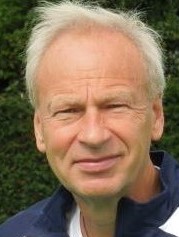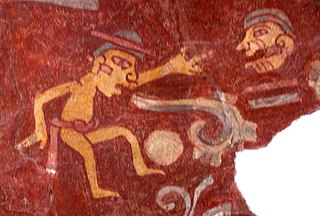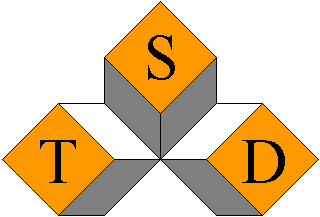 W
WAvram Noam Chomsky is an American linguist, philosopher, cognitive scientist, historian, social critic, and political activist. Sometimes called "the father of modern linguistics", Chomsky is also a major figure in analytic philosophy and one of the founders of the field of cognitive science. He is Laureate Professor of Linguistics at the University of Arizona and Institute Professor Emeritus at the Massachusetts Institute of Technology (MIT), and is the author of more than 150 books on topics such as linguistics, war, politics, and mass media. Ideologically, he aligns with anarcho-syndicalism and libertarian socialism.
 W
WThe Declaration on the Common Language was issued in 2017 by a group of intellectuals and NGOs from Croatia, Bosnia and Herzegovina, Montenegro, and Serbia who were working under the banner of a project called "Language and Nationalism". The Declaration states that Croats, Bosniaks, Serbs and Montenegrins have a common standard language of the polycentric type.
 W
WThe Declaration on the Name and Status of the Croatian Literary Language is the statement adopted by Croatian scholars in 1967 arguing for the equal treatment of the Serbian, Croatian, Slovene, and Macedonian language standards in Yugoslavia. Its demands were granted by the 1974 Yugoslav Constitution.
 W
WDigital infinity is a technical term in theoretical linguistics. Alternative formulations are "discrete infinity" and "the infinite use of finite means". The idea is that all human languages follow a simple logical principle, according to which a limited set of digits—irreducible atomic sound elements—are combined to produce an infinite range of potentially meaningful expressions.
 W
WA gloss is a brief notation, especially a marginal one or an interlinear one, of the meaning of a word or wording in a text. It may be in the language of the text or in the reader's language if that is different.
 W
WDieter Gilberto Hillert is a German-American biolinguist and cognitive scientist. His research focuses on the human language faculty as a cognitive and neurological system. He is known for work on the neurobiology of language, real-time sentence processing, and language evolution. He advocates comparative evolutionary studies of cognition, argues against tablua rasa models, and favors computational theories of mind.
 W
WA language is a structured system of communication used by humans, including speech, gestures and writing. Most languages have a writing system composed of glyphs to inscribe the original sound or gesture and its meaning.
 W
WLingua Libre is an online collaborative project and tool by the Wikimedia France association, which aims to build a collaborative, multilingual, audiovisual corpus under free license.
 W
W"The medium is the message" is a phrase coined by the Canadian communication theorist Marshall McLuhan and the name of the first chapter in his Understanding Media: The Extensions of Man, published in 1964. McLuhan proposes that a communication medium itself, not the messages it carries, should be the primary focus of study. He showed that artifacts as media affect any society by their characteristics, or content.
 W
WModels of communication are conceptual models used to explain the human communication process. The first major model for communication was developed in 1948 by Claude Shannon and published with an introduction by Warren Weaver for Bell Laboratories. Following the basic concept, communication is the process of sending and receiving messages or transferring information from one part (sender) to another (receiver).
 W
WOlfactory language refers to language associated with the sense of smell. It involves the naming and categorisation of odours by humans according to each odour's perceived source or attributes. The study of olfactory language is part of the field of linguistics and is distinct from the study of semiochemical communication, which involves communication between organisms using chemical substances detected through olfaction.
 W
WOrality is thought and verbal expression in societies where the technologies of literacy are unfamiliar to most of the population. The study of orality is closely allied to the study of oral tradition.
 W
WRhema literally means an "utterance" or "thing said" in Greek. It is a word that signifies the action of utterance.
 W
WText, Speech and Dialogue (TSD) is an annual conference involving topics on natural language processing and computational linguistics. The meeting is held every September alternating in Brno and Pilsen, Czech Republic.
 W
WThe tonograph is a device invented by Italian scientist Luca de Samuele Cagnazzi (1764-1852) and presented at the Terza riunione degli scienziati italiani, held in Florence in September 1841.
 W
WThe type–token distinction is the difference between naming a class (type) of objects and naming the individual instances (tokens) of that class. Since each type may be exemplified by multiple tokens, there are generally more tokens than types of an object. For example, the sentence "A rose is a rose is a rose" contains three word types, "a", "rose", and "is"; and eight word tokens of those types, "a", "rose", "is", "a", "rose", "is", "a", "rose". The distinction is important in disciplines such as logic, linguistics, metalogic, typography, and computer programming.
 W
WIn the countable sense, a verse is formally a single metrical line in a poetic composition. However, verse has come to represent any division or grouping of words in a poetic composition, with groupings traditionally having been referred to as stanzas.
 W
WWorld Englishes is a term for emerging localized or indigenized varieties of English, especially varieties that have developed in territories influenced by the United Kingdom or the United States. The study of World Englishes consists of identifying varieties of English used in diverse sociolinguistic contexts globally and analyzing how sociolinguistic histories, multicultural backgrounds and contexts of function influence the use of English in different regions of the world.